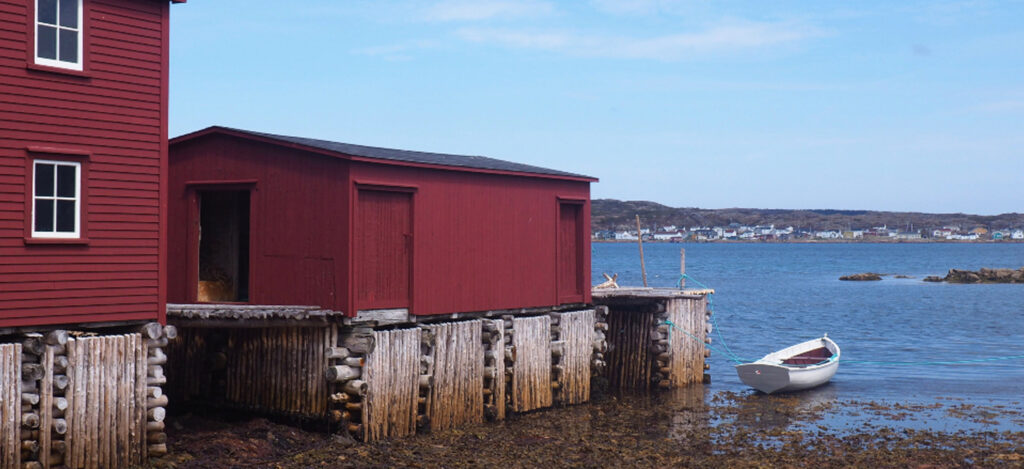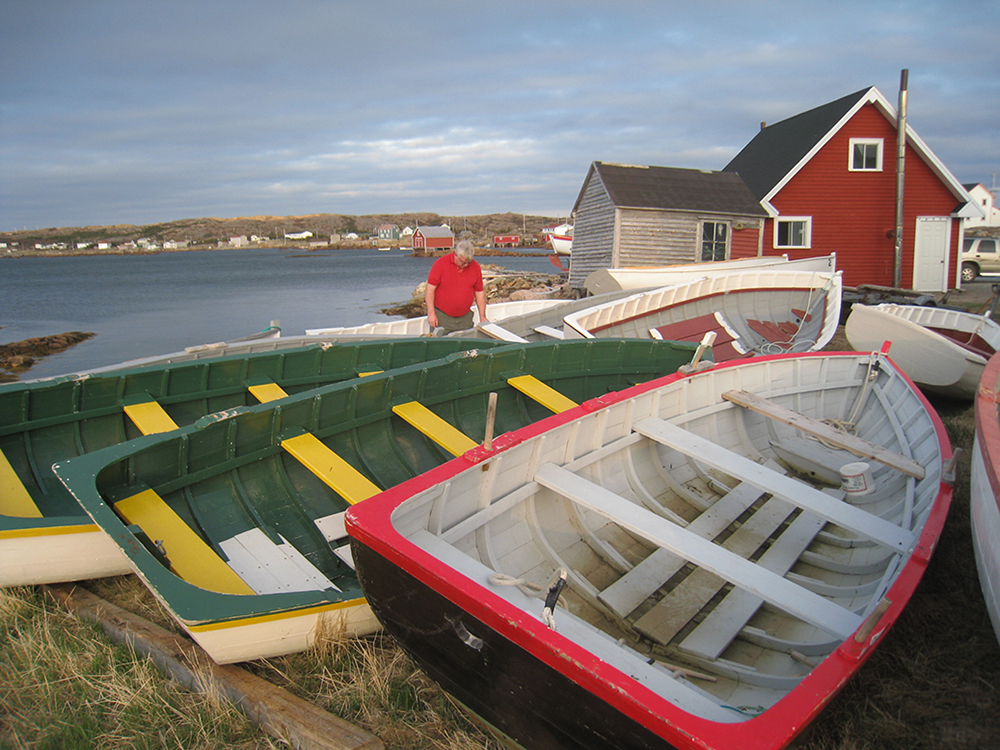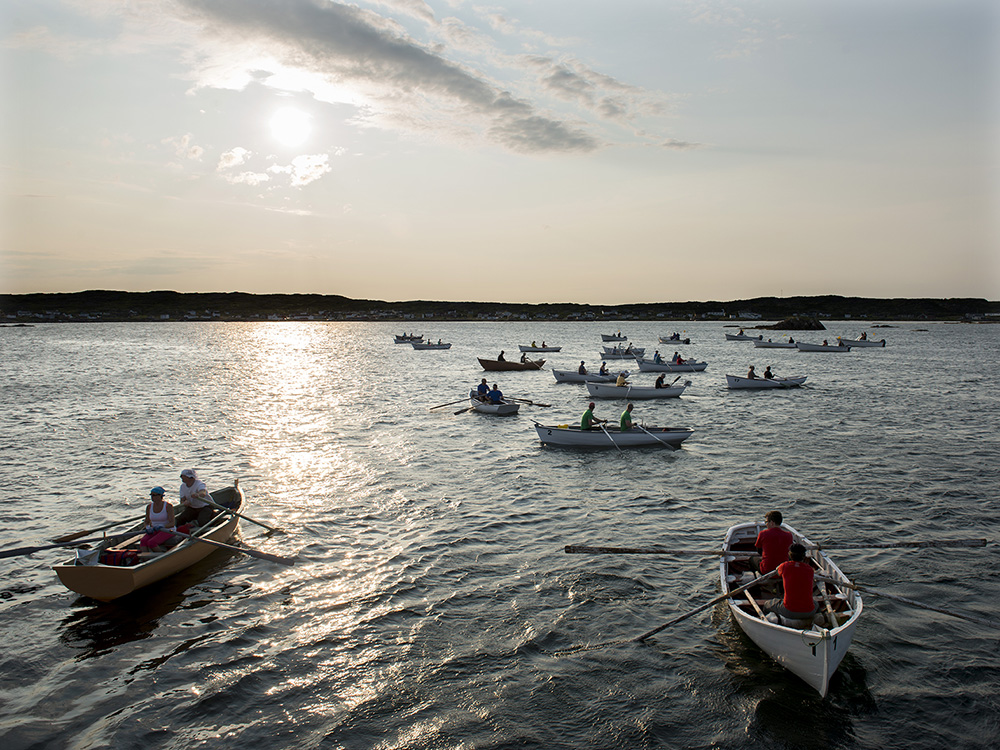
On view at the Punt Premises are a wealth of cultural artifacts including cod traps and items associated with their making and mending, knots, boatbuilding tools and models, fishing gear, photos, sound recordings, and household items. Importantly, the spaces of the Premises demonstrate how a fishing family lived and made a living in the vibrant inshore fishing era on which our outport culture was founded; it is both a tribute to our proud past and a promise for a hopeful and successful future off our province’s Northeast Coast.
The Punt Premises represents the next phase of our charity’s long-term work to safeguard Fogo Island’s boatbuilding heritage and all its associated knowledge for renewed and repurposed use in building a modern, outport economy; it is representative of “finding new ways with old things”.


In 2007, Shorefast began the award-winning Great Fogo Island Punt Race to There and Back, and also spearheaded a school program that placed students in apprenticeship with boatbuilders to reinvigorate excitement and learning around the punts. After the Great Fogo Island Punt Race celebrated its 10th anniversary in 2017, attentions and energies were refocused on creating the Punt Premises as a permanent, dynamic, and publicly accessible place for residents and visitors alike to learn about the importance of the punt and the inshore fishery to our shared cultural history.
“Much of Shorefast’s work is about the making, preserving, and sharing of knowledge,” said Zita Cobb, CEO of Shorefast and Innkeeper of Fogo Island Inn. “The punts contain irreplaceable cultural knowledge that we intend to carry forward and make relevant for new generations through the Punt Premises. This project would not have been possible without the support and partnership of private donors and both levels of government.” Fogo Island Mayor Wayne Collins added: “The public programming for visitors and locals at the Punt Premises is a welcome addition to Fogo Island as we continue to grow our economy and ensure our heritage is preserved.”